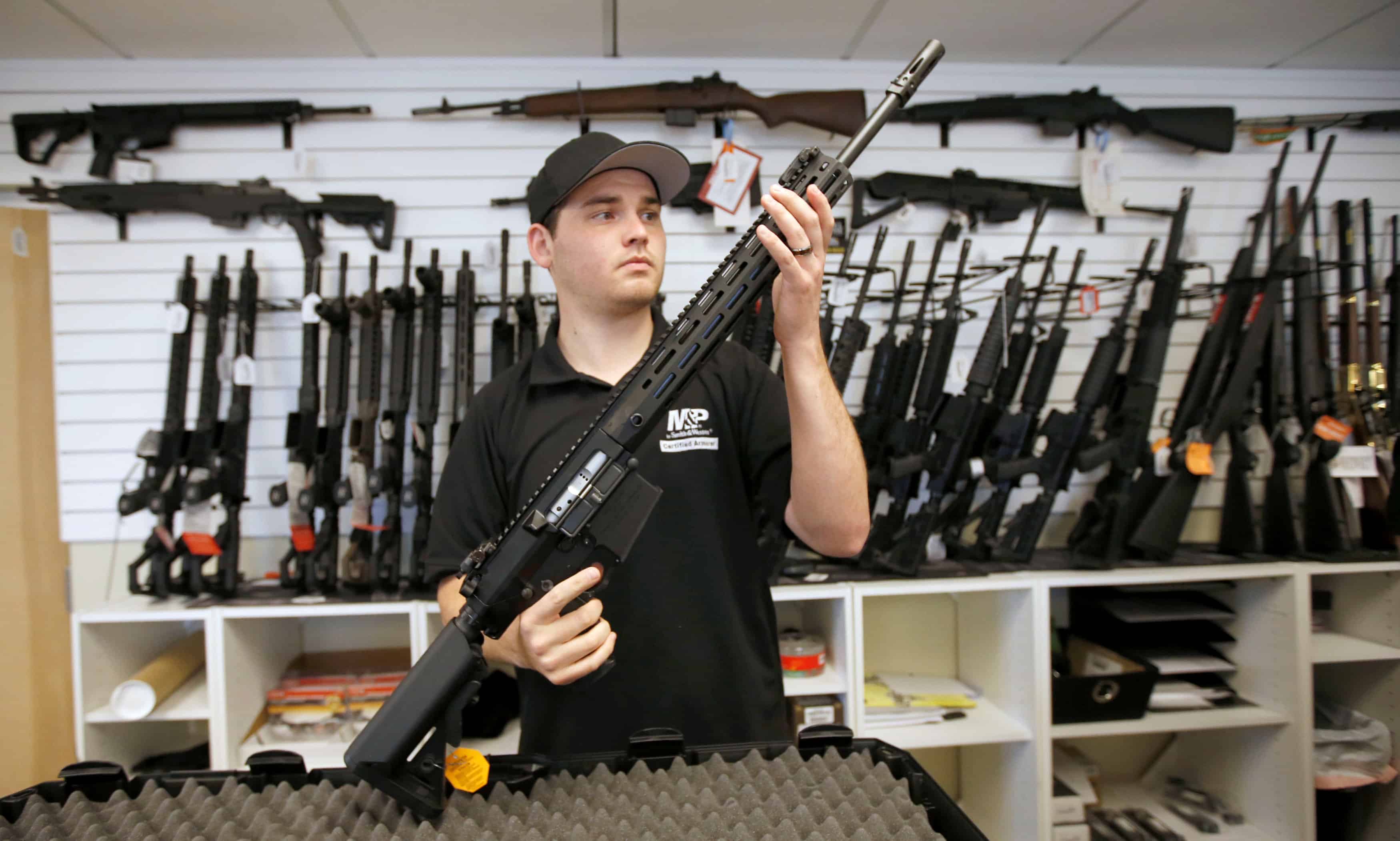Part II of a two-part series. See here for Part I on conservatives and gun control.
*****
Last week, I addressed the ways in which conservatives might move into the national conversation surrounding gun violence.
In this post I focus on the liberal puzzle surrounding the role of knowledge in the gun control debate. If conservatives have a values problem, then liberals have a knowledge problem.
Liberals who wish to enter into the gun control debate must be willing to enter into these debates with better information about guns, gun culture, gun violence, and the Second Amendment.
It is easy at this point to say, “I know all I need to know: guns are dangerous and they should all be banned.” Yes. Guns are dangerous, and to pretend that they are anything otherwise is foolish and careless.
Banning all guns in the US, however, might be more of an idealistic wish than a path towards meaningful reform. Acknowledging the legal parameters framed in the Second Amendment as interpreted by the Supreme Court today, banning all guns is constitutionally impossible. Legislation and policy that proposes this as the only solution politicians can and should pursue does not reflect a pragmatic desire to begin tackling the problem now. Even if all guns could be banned, unimaginable financial resources would have to be utilized to track down the estimated 300 million firearms in the United States.
***
Barring the repeal of the Second Amendment, then, gun control advocates will have to push for more nuanced policy. But nuanced policy, again, requires knowledge.
Learning about firearms would have a two-fold purpose for liberals. First of all, such knowledge will help them craft better policy and, second, it will build important credibility when talking to political opponents who assume most gun control advocates do not know what they are talking about. These are related problems, of course. Talking about firearms can get very technical very quickly. While making general statements about the dangers of firearms catches the public’s attention, headlines can often be misleading and even reflect wrong information about what are the most dangerous weapons out there and why they should be seized. The control solutions can quickly come off as uninformed, and therefore, unserious.
What kinds of things should liberals learn about guns? Here I will consider four points: technical distinctions about guns; gun violence; gun control policy; and gun culture.
Liberals should know something about guns if they hope to regulate them. Headlines call for a ban on all assault weapons, for example, but what actually classifies as an “assault weapon?” To some this means automatic weapons, which are already unavailable in civilian markets. To others it means guns that look scarier than others, without any real consideration to their firing mechanism or caliber. Some would say that extended magazines have absolutely no place in civilian hands, but many ranchers who deal with wild hogs would disagree. While there are a number of things to know about the weapons themselves, taking the time to understand some of the complexities of classifying weapons would lead to a more informed debate, where potential policies could be discussed credibly.
Many people have proposed banning bump stocks and raising the age on semi-automatic rifle purchases, such as Donald Trump. These might seem like steps in the right direction. But such measures do not address the extent of US gun violence. Mass shootings are particularly heinous, but are in reality rare. While all gun violence is tragic, of the 33,000 gun-related deaths estimated each year, over 60% are self-inflicted. In other words, most gun violence in the US is the result of suicide and many Americans do not realize that. Most gun violence has nothing to do with school shootings, mass murders or AR-15s, despite the ways those things dominate the media.
Another way to put this problem: policy aiming to solve some kinds of gun violence might not solve other kinds. While I am not saying that we should care about some kinds of gun violence – school shootings should be prevented, no matter how rare they are – Americans have to examine the scope and complexity of the gun violence problem in the US if we are going to begin to craft effective policy.
Luckily, there are many articles that have gathered some important statistics about firearms and gun violence. FiveThirtyEight compiled an interactive graphic detailing the statistics of gun violence in America. It is worth exploring and points to a number of concerning issues that go beyond headline-grabbing references to the AR-15 and mass shootings.
Another area of important knowledge is policy. For most liberal politicians, the solution to gun violence has been government intervention through national policy and legislation. Gun control advocates see governmental restrictions on access to firearms as the only way forward. Ironically, however, major corporations and firearm retailers have already taken steps in limiting access. Dick’s, Walmart, Fred Meyer and others are finding ways to act without waiting for Congress to do something. For that matter, liberals have increasingly turned to state and local-level policy-making in the Trump era. Liberals might find it beneficial, in other words, to explore options besides federal legislation.
An often-overlooked factor in the gun control debate is the United States’ unique relationship with guns. Australia and Britain, which are often hailed as the models of gun control initiatives that work, never had the history of firearm ownership that the US does, let alone the constitutional protections afforded to private citizens owning weapons. While it is helpful to look at the policies of other countries in addressing gun violence, liberals have to realize that Americans have an entirely different relationship with firearms, for better or for worse. If the default is to appeal to the success of gun control as it worked in other countries, than the risk of passing meaningful legislation that addresses our unique problems could be for naught.
***
This issue of culture takes us back to credibility. Gun policy, as many have noted, runs straight into the problem of identity politics. Americans use guns recreationally. Hunting is a popular pastime of rural life throughout the US, whether in southern Louisiana or upstate New York. Indeed, it is a tradition, shared in by family and friends and passed down through the generations. Even people who move into more urban areas, especially the suburbs of the New South, frequently continue to participate in rural gun culture.
But many other Americans have never even seen or held a gun. And therein lies the problem. Then Senator-Obama revealed a great deal when he said that lower-middle-class whites “cling to guns or religion.” He didn’t understand such voters, and he probably didn’t expect them to understand him, either, much less vote for him. And he was right: patterns of gun ownership, and thus participation in gun culture, reflect partisan divisions that have fractured our country – and was an incredible predictor of how people voted in the 2016 election.
But if we are going to transcend such partisan boundaries, we have to be able to have conversations across cultural divides. Neither side can simply scorn the other, but has to be willing to learn enough about the other side to become a credible conversation partner.
And we cannot pretend that these cultural boundaries are altogether innocent. There are also cultural boundaries between the comfortable suburbs and the more violent inner cities. Reducing violence from gangs, drugs and organized crime extends beyond gun regulations and will demand the alleviation of economic and social disparities that cruelly limit access to education, healthcare and job opportunities.
If we as Americans hope to work for peace, we have to learn to come together. Are we willing to leave our entrenched political positions and honestly reflect upon our beliefs? Are we willing to share our experiences and listen to one another? My overall goal of these articles is to encourage political opponents to see ways of finding common ground, or at least move into a more value-based, informed debate so that we as Americans can begin to adequately address the problem of gun violence.


